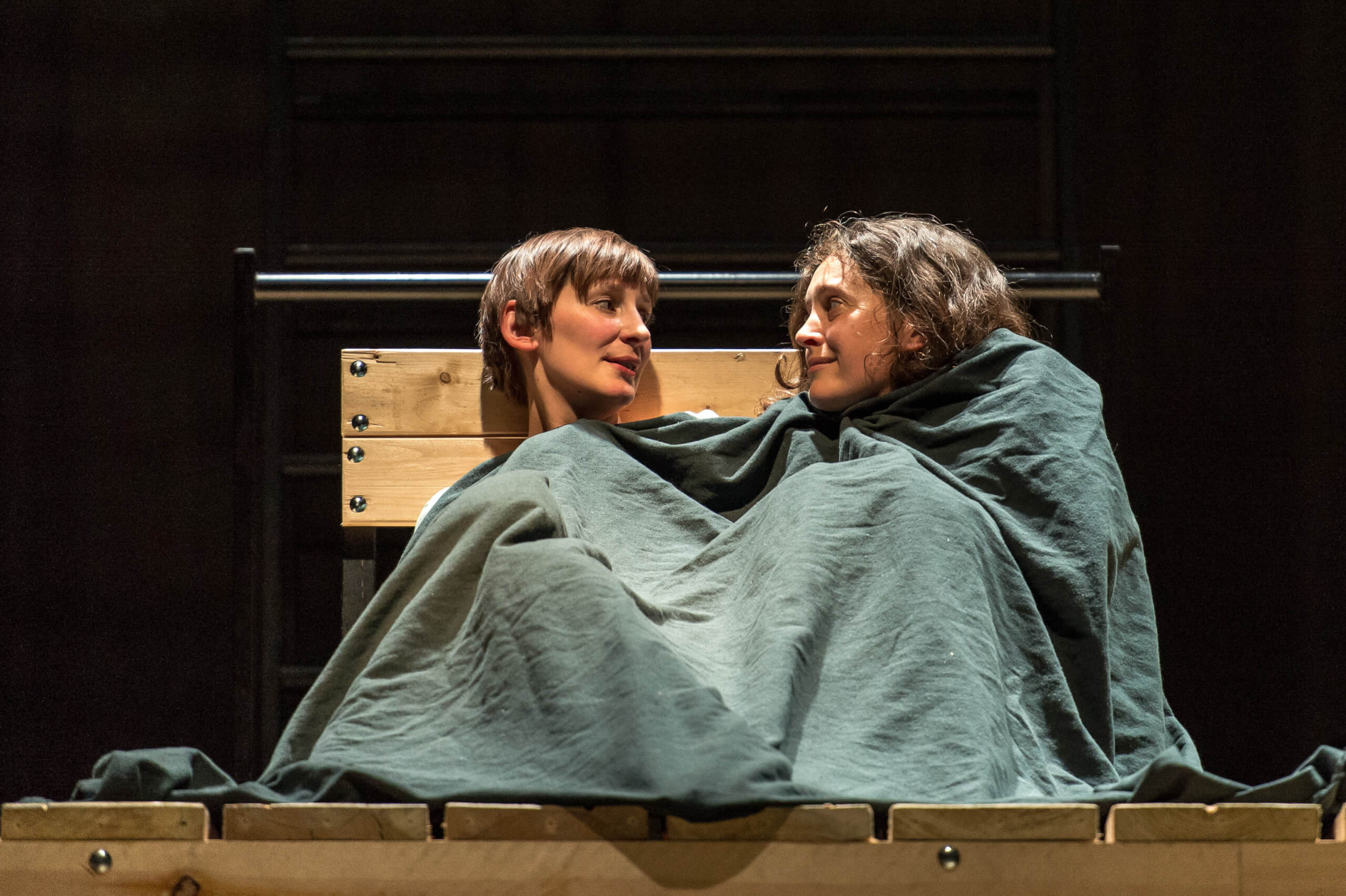
Charlotte Bronte's eponymous novel of the life of Jane Eyre is considered avant-garde, ahead of its time, dabbling with gender roles, sexuality and religion during the 19th century. Yet through Bronte, Eyre was given an individual voice that went against social whims, and was arguably one of the first examples of proto-feminism, of the century.
Now, still, showing at the National Theatre is Sally Cookson's ensemble adaptation, which was first shown last year at the Bristol Old Vic, as part of a hugely successful two-part show. Presented as a single show, this 210-minute drama begins with Jane (Madeleine Worrall) crying like a first born child, with atmospheric music performed by a impassioned band who prepares the audience for the psychological ordeals that this would-be child later endures. With Cookson, however, it's abundantly clear that she studies Eyre's cruel and desperate upbringing, rather than hone in, so much, at the troublesome and confusing relationship she develops with Rochester.
Stage designer, Michael Vale offers a rustic, wooden maze of ladders and platforms for the complex characters to dance, run and hide away. The jazz ensemble (piano, drums and brass) is stationed centre stage throughout; either they are singing and banging to the beat of Eyre's feet, or buzzing to a stagecoach charade, running on the spot to signify Eyre's journey to a new country estate or the draconian Thornfield Hall School.
Cookson's play instills the neglect and abandonment of various family members in Eyre's life, from her parents, her kindly uncle and best friend, Helen Burns (Laura Elphinstone), who were lost to the widespread diseases of the time. This follows her hardship under the verbally abusive Aunt Reed (Maggie Tagney) and over-zealous Mr Brocklehurst (Craig Edwards). Aideen Malone's exquisite display of light and Benji Bower's howling score represent the fragility of Thornfield Hall and the chilling depression of Lowood.
Worrall's sensitive and tender portrayal of Eyre has crafty nuances of childishness, which appeals to Felix Hayes's aggressive and Byronic Rochester. Hayes retains an assured and bold Rochester whose overt superiority exudes rough-around-the-edges masculinity. Craig Edwards animatedly performs as his giddy and curious dog, Pilot and Melanie Marshall gives a gracious and heart-felt performance singing as Rochester's insane wife, Bertha.
This original production puts a musical twang to Bronte’s 19th century tale and brings to life the internal voices that haunted Eyre. The performance is visceral and the music is, almost, unforgettable.
For more information on Jane Eyre, please click here.
Click here for NT Live's performance of A View from the Bridge with Mark Strong.
NT Live Review of Everyman, click here.
Click here for NT Live Review of Tom Stoppard's The Hard Problem.









No comments:
Post a Comment